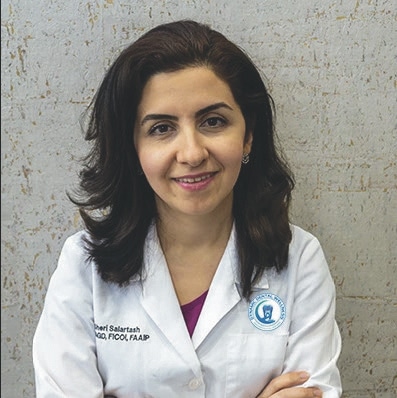
Dynamic Dental Wellness
20755 Williamsport Place
Suite #300
Ashburn, VA 20147

More Dental Health Articles
Sleep Disordered Breathing in Children
Every child should be screened for sleep disordered breathing and every parent needs to understand what to look for to assess their child for improper breathing and absence of reparative rest. Research has shown that nine out of 10 children present at least one outward side effect of sleep disordered breathing.
Early Treatment
Is Critical
If children are left untreated, little can be done to correct these symptoms as adults. It can cause abnormal conditions, such as:
ADD/ADHD
Chronic allergies
Aggressive behavior
Swollen tonsils and adenoids
Excessively loud snoring
Crooked teeth
Restless sleep
Delayed growth
Mouth breathing
Improper jaw structure
Sleep apnea/ sleep disordered breathing
Narrow arches and dental crowding
If your child suffers from oral habits such as thumb and finger sucking, improper tongue positioning during rest and swallowing, it could lead to open-bites, overjet and flared upper teeth. It may also interfere with proper chewing, speech difficulties, including a lisp, crooked teeth, and so on.
Compromised Airway
Nine out of 10 children suffer from sleep disordered breathing (SDB) because of a compromised airway. When the airway is narrow, undeveloped, or constricted, the child will struggle to receive enough oxygen at night and may result to mouth breathing. The airway is improved by correcting the position of the upper and lower jaw relative to each other and to the bones of the face. This promotes better tongue position, proper nasal breathing, and better development of the jawbones and mid facial growth.
Mouth Breathing
Mouth breathing prohibits the proper exchange of carbon dioxide and oxygen, leading your child to breathe unpurified air. If your child is not receiving enough oxygen, they will not enter rapid eye movement (REM) sleep and cannot grow or develop properly. Mouth breathing also prevents proper tongue functionality and other facial muscles leading to orthodontic and orthopedic treatment.
Improper Bite and Jaw Relationship
Bite abnormalities arise in between 60% to 75% of the population and affect both children and adults. Untreated bite abnormalities can affect oral health and bite and jaw function. Difficulties in closing the lips, and a frequently open mouth, can cause drooling, dry mouth, increased risk of caries, risk of infection and common bite abnormalities such as open bite, protruding teeth, overbite and narrowed palate roof. Research has determined that by treating these symptoms early it will lead to an open airway, pleasing facial profile, and an easy path to a healthy growth development.
Other Articles You May Find of Interest...
- Let’s Smile Dental’s 7&Up Club
- Strengthening Smiles: Understanding the Importance of Splinting Periodontally Involved Teeth
- Understanding Soft Tissue Grafting: A Key To Periodontal Health
- New Solutions for Dentures and Dental Implants
- Benefits Of Immediate Dental Implants
- Preventing Tooth Injuries During Your Child’s Active Summer
- How New Tech In the Dental Office Benefits You

















